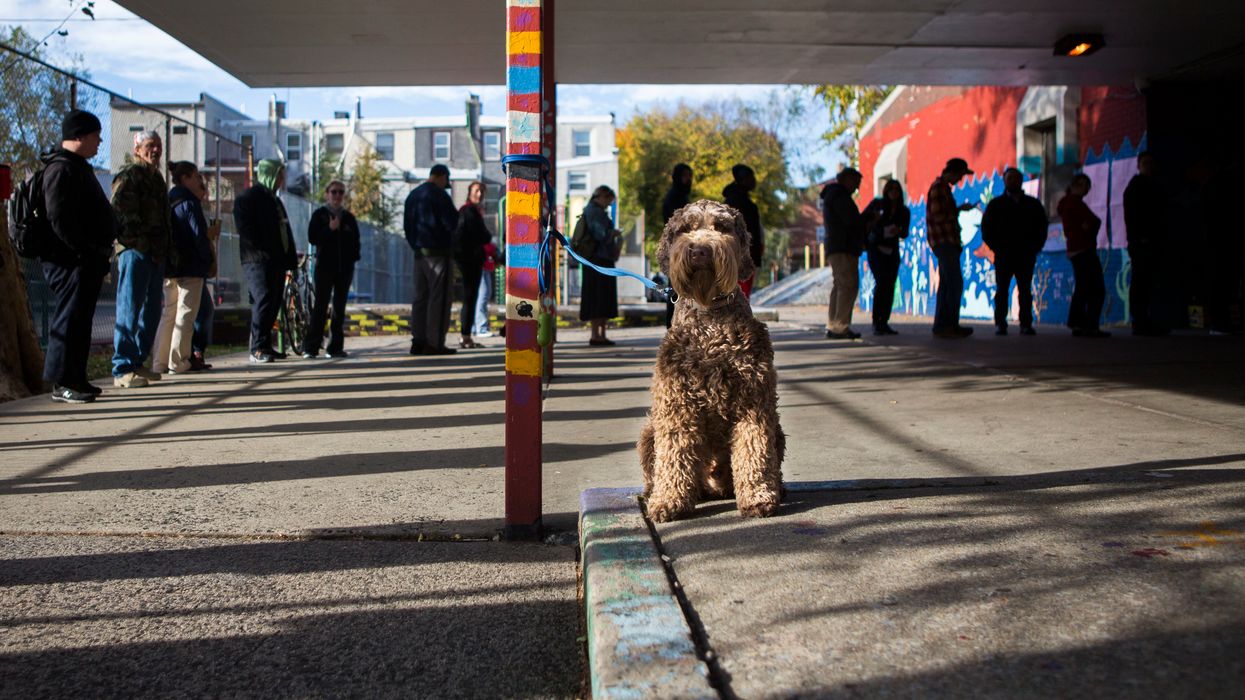Some of the most important expansions of ballot access in 2020 are very likely to be in Pennsylvania, one of the biggest of the tossup states where the presidency could get decided next year.
Democratic Gov. Tom Wolf and the Republicans in charge of the General Assembly reached a deal this week on a legislative package that would smooth access to the polls in four ways starting with the primaries in April, which may provide a turning point in the Democratic presidential contest.
An even bigger impact could come in the fall, when Pennsylvania's 20 electoral votes will be central to the strategies of both nominees and turnout will be all-important. After backing the Democrat in six straight elections, the state went to President Trump in 2016 by less than a percentage point — a gap of 44,000 votes out of more than 6 million cast.
But the bill, which is on course for approval in Harrisburg in coming days, would provide no democracy reform panacea in the nation's fifth most populous state. Instead, it is being described by its proponents as propelling Pennsylvania from the back of the pack into the top half of the states when it comes to ease of voting.
"These are really good reforms, and they will bring us more in line with 20th century voting. Not even the 21st century. It's a step in the right direction," said Democratic state Sen. Lisa Boscola, a prime negotiator of the legislation. "We haven't had any changes to our voting laws, our election laws, in decades."
"It's clear improvement on the whole to the process, sort of maybe revolutionary only by Pennsylvania standards," David Thornburgh, who runs a "good government" group in the state called the Committee of Seventy, told the Philadelphia Inquirer. "On the Richter scale of change, it's not a nine."
In addition to making it easier for Pennsylvania to vote, the package would provide $90 million for purchasing new paper-based voting machines to replace the electronic equipment now in use across the state. Still, it would take a generous portion of the federal election security grant pool now being considered in Congress, and for that money to be appropriated relatively quickly, for the state to have what it needs (about $150 million) to deliver to all 67 counties the hacking-resistant, auditable machines that security experts say should be the standard.
The big win in the bargain for Republicans legislators was their top wish for bettering democracy: removing Pennsylvania from the dwindling list of states (just eight now) that will permit straight-ticket voting next year.
Republicans say allowing voters to make a single selection endorsing all of one political party's candidates on the ballot is a deterrent to having the electorate become educated on all their choices, a punishment for lesser-known candidates and an improper reward for party bosses.
Democrats and most good-government groups disagree and point to research showing straight-party voting boosts turnout, especially in urban areas and other places where too few voting machines mean long and discouraging wait times.
The biggest changes to voting that would be created if the bill becomes law:
- Allowing any voter to request an absentee ballot and use it to vote by mail without providing a reason. The state is currently among 19 that require voters to justify why they cannot go to the polls on Election Day.
- Extending the deadline for returning an absentee ballot to when the polls close on Election Day, four days later than now. Critics say the current Friday-before-Election-Day cutoff is one reason why Pennsylvania has one of the highest rates of absentee ballot rejections in the country.
- Permitting voters to be placed on a list for receiving an absentee ballot indefinitely, so they may always vote early and by mail. Six states and the District of Columbia allow this for all voters; 11 others allow it for the elderly or disabled.
- Setting a voter registration deadline of 15 days before an election, instead of 30 days. The state and five others now have registration deadlines a month before the polls close. The change would put Pennsylvania among six states that allow voters to register within two and a half weeks of Election Day, but negotiators decided against proposals to add the state to the roster of 19 with same-day registration.
Also abandoned in the talks were proposals for adding Pennsylvania to the roster of 16 states that automatically register eligible voters when they interact with state agencies such as the motor vehicle bureau; turning the drawing of political boundaries over to an independent panel; and opening primaries to independent and third-party voters.




















